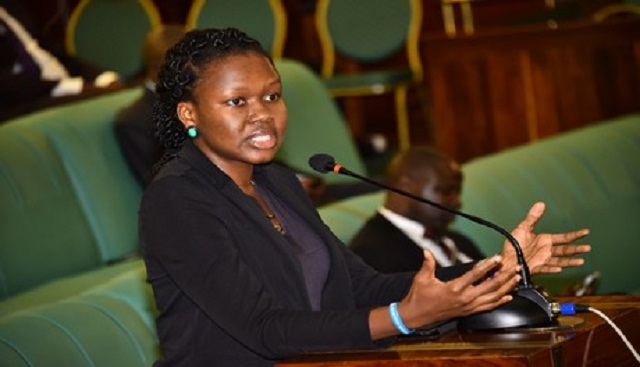
Secrecy around MPs pay
At this point, analytical observers often ask why the salary of an MP cannot be stated specifically. The explanation is in four forms; firstly, MPs are not officially the most highly paid people in Uganda but are the flashiest. So, it is assumed, they must be getting a lot of money unofficially. There is also a lot of secrecy surrounding the cost of parliament generally, no MP is willing to share personal information, and most of MPs’ pay is dished out as allowances.
What happened at parliament on April 04 illustrates the secrecy around the MPs salaries. On that day, the Deputy Clerk of Parliament, Henry Waswa, presented the 2019/2020 budget of parliament to the Legal and Parliamentary Affairs Committee of Parliament for approval.
Usually, those in attending such meetings are allowed to walk out with documents. But after the event, all documents were withdrawn from the MPs present and they were cautioned not to discuss them outside the room. Some MPs not familiar with how parliament’s budget is handled were surprised. But the older MPs are used to the secrecy.
ACODE made a note of it in their report: ““Accurate data on the remuneration of legislators is held as top secret by the parliamentary administration and, therefore, attempts to access the relevant information during this study were denied,” it wrote in 2009. The secrecy persists 10 years later.
All information on MPs salaries and allowances discussed in the media is based on anecdotal data compiled from different sources. The result is a lack of facts and spread of misinformation.
Adeke Anna Ebaju, the Youth Member of Parliament, says “the salaries of MPs are moderate”. But she says many of MPs struggle to make ends meet only because constituents are often under the impression that MPs should meet some of their financial needs.
Today, it is generally believed that each MP takes home averagely Shs25 million monthly, is given Shs103 million to buy a car of choice at start of 5-year term, and an I-pad. They also bag sitting allowances for committees and plenary and per diem for inland and abroad travel and get medical allowances and insurance.
But when agitating for higher pay, the MPs often claim they averagely get only Shs6 million per month; that is the Shs11 million basic salary of an MP minus taxes and other deduction. They never mention the Shs15 million to Shs30 million they get monthly in fuel/mileage allowance depending on how far their constituency is from the parliamentary building.
An article by Mark Babatunde of Face2Face Africa in 2018 placed Uganda in fourth position on the list of highest paid legislators in Africa, with only South Africa, Nigeria, and Kenya ahead of it in that order from highest paid.
South Africa and Nigeria are the biggest economies by GDP in Africa while Kenya is in 8th position. Uganda meanwhile is among the smaller economies in GDP terms and is in 17th position. MPs in bigger economies like Egypt, Algeria, Angola and even Ethiopia and Tanzania earn far less that Uganda MPs. Uganda also has one of the lowest income per capita figures on the continent.
A Kenyan legislator’s monthly salary was in 2018 recorded at $13,740, putting the annual wage bill for parliament at $60 million. The average monthly salary for Ugandan MPs was recorded at $8,715, slightly more than half that of Kenya. Ugandans was said to spend $45 million annually to pay the salaries of their MPs. Tanzania came in as number five, paying their legislators a monthly salary of $7,266, meaning that the economy dishes out $31 million per year to pay their MPs, half of what Kenya spends.
 The Independent Uganda: You get the Truth we Pay the Price
The Independent Uganda: You get the Truth we Pay the Price



Hi independent.co.ug webmaster, You always provide valuable information.
Hello independent.co.ug webmaster, Keep sharing your knowledge!
Hi independent.co.ug owner, Thanks for the in-depth post!